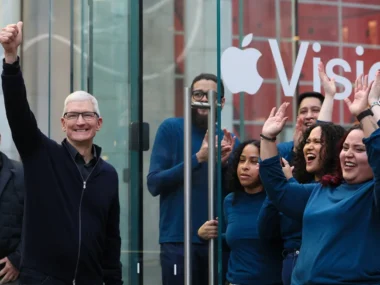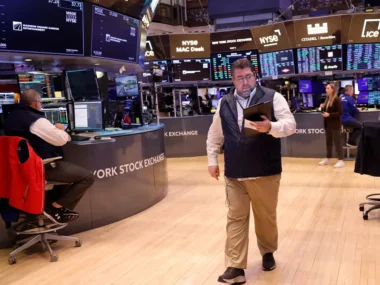
A late Black Friday and an unusually warm October have led to a sluggish start for seasonal sales, with expectations remaining low.
Retailers anticipate a cautious holiday season as shoppers focus on Black Friday bargains amid concerns over rising energy and housing costs and the implications of the recent budget.
Seasonal trade has been sluggish, with Black Friday falling a week later than last year. Many shoppers have delayed their purchases, hoping to secure discounts during the promotional period.
Data from e-commerce trade body IMRG, which tracks over 200 online retailers, shows a continued decline in sales this month, following a weak October. Sales dropped 11.7% during the week of 10 November, marking the worst performance of the year. According to IMRG’s insight director, Andy Mulcahy, online sales for the year are down 2.5%, with annual figures expected to decline by at least 2%, signaling “not a good year.”
Clothing and gift sales remain particularly weak, reflecting a challenging 2023. JD Sports recently warned that annual profits might hit the lower end of forecasts, citing mild October weather and fierce promotional competition as key factors.
“With Christmas Day landing on a Wednesday, December 21 could become a “super Saturday” for last-minute shoppers.”
Online fashion retailers like Asos and Boohoo face mounting pressure as sales decline under competition from discount rivals Shein and Primark. However, the challenges aren’t confined to online platforms. According to the Office for National Statistics (ONS), retail sales dropped by 0.7% in October, signaling a weak start to the critical pre-Christmas trading period. Even food retailers, usually resilient as households opt for home cooking to save money, saw a 0.6% sales decrease.
Retailers are also grappling with increased costs. The recent national insurance hike will add £7 billion annually, potentially triggering job cuts and price hikes. Diane Wehrle, CEO of Rendle Intelligence and Insights, notes that this, along with a drop in consumer confidence, will lead to a cautious Christmas, with shoppers prioritizing discounts over festive in-store experiences. High street sales are expected to rise by just 0.5%, with online sales growing 4%. Still, rising delivery and return costs may make physical stores more appealing to some shoppers.
Doug Putman, head of HMV, observes that sales trends vary widely by product category. Items like vinyl records and beauty products are performing well, while toys and high-end furniture struggle. Lisa Hooker of PwC points out that Black Friday’s later timing and alignment with payday could boost spending, with some shoppers benefiting from pay increases catching up to inflation. Cold weather may also drive sales of winter apparel this month.
Nationwide predicts Black Friday spending will exceed £336 million, a 12% increase. Additionally, Christmas Day falling on a Wednesday could spark a shopping surge on “super Saturday,” December 21, as people make last-minute purchases before traveling for the holidays.
Despite holiday optimism, Putman warns of tougher conditions in the new year as the full impact of budgetary changes takes hold, highlighting the need for sound political decisions amid fragile consumer confidence worldwide.










